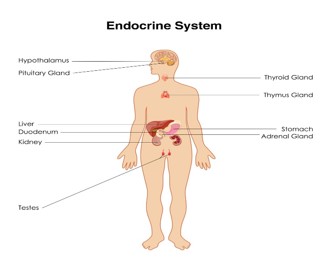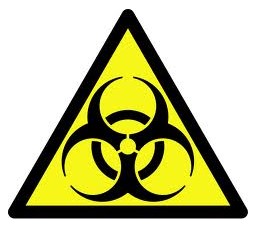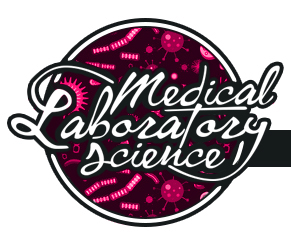|


 |
Clinical Chemistry 3
Clinical chemistry III one of the courses in the field of Medical laboratory Science which tackles Endocrinology and the Toxicology. Endocrinology is a specialty of medicine; some would say a sub-specialty of internal medicine, which deals with the diagnosis and treatment of diseases related to hormones. It is also covers such human functions as the coordination of metabolism, respiration, reproduction, sensory perception, and movement. Endocrinology also focuses on the endocrine glands and tissues that secrete hormones. The word "endocrinology" comes from the Greek endon meaning "within", and the Greek krinein meaning "to separate".
Endocrinology involves in studying the Endocrine system of the humans which are Adrenal glands usually located atop the kidneys. Adrenal glands are divided into 2 regions, the right gland is triangular while the left one is semilunar in shape. Hypothalamus which is located just above the brain stem, below the thalamus. The ovaries, located on either side of the uterus in females, secrete the hormones estrogen and progesterone. Pancreas that is located in the abdomen. The pancreas is both an endocrine gland and a digestive organ. Parathyroid glands a small endocrine glands located in the neck. Pineal body (pineal gland) small endocrine gland located in the brain. It secretes melatonin, and is probably involved in controlling the body's sleep patterns. Pituitary gland endocrine gland located just off the hypothalamus at the base of the brain (a protrusion off the hypothalamus). Thymus gland an endocrine gland located beneath the breastbone (sternum). T lymphocytes, types of immune cells, mature and multiply in the thymus gland early in life. Thyroid gland is also endocrine gland located just below the Adam's apple in the neck; it produces hormones that play a key role in regulating blood pressure, body temperature, heart rate, metabolism, and how the body reacts to other hormones.

The toxicology part is study of adverse effects that occur in living organisms due to chemicals. It involves observing and reporting symptoms, mechanisms, detection and treatments of toxic substances, in particular relation to the poisoning of humans.It includes environmental agents and chemical compounds found in nature, as well as pharmaceutical compounds that are synthesized for medical use by humans. These substances may produce toxic effects in living organisms including disturbance in growth patterns, discomfort, disease and death.

|
|



